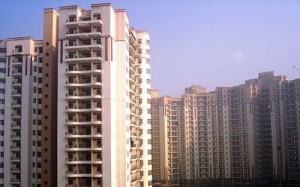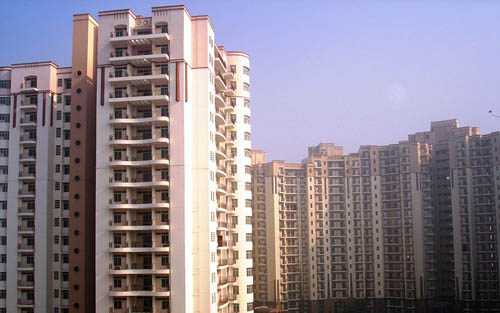 India’s real estate sector will be among the worst hit by the Reserve Bank of India’s decision to raise key interest rates, experts have said. The rise will have a severe impact on both developers and home buyers.
India’s real estate sector will be among the worst hit by the Reserve Bank of India’s decision to raise key interest rates, experts have said. The rise will have a severe impact on both developers and home buyers.
Each of the last 10 repo rate hikes has meant a higher interest rate for home loans as well as project loans to developers and now the things have come to a pass where the demand for houses and other realty products may slow down. This is 11th time in the last 17 months that the RBI rates have been increased.
Lalit Kumar Jain, National President of the Confederation of Real Estate Developers Associations of India (CREDAI) has said that the RBI move to raise the repo rate by 50 basis points comes as a shock for the realty industry.
Jain, also the Chairman and Managing Director of Kumar Urban Development Limited, added, “The cost of funding is going be higher as banks are bound to increase their lending rates.”
Jain said the real estate industry is facing a financial crunch and the fund gap over the next five years alone would be as high as $70 billion. “The RBI announcement, therefore, could be detrimental to the growth of the industry and economy,” he said.
Sanjay Dutt, Chief Executive Officer, Jones Lang LaSalle India said the increase in key short-term lending and borrowing rates was expected, but the magnitude of 50 basis points comes as shock.
“There is no doubt that inflation is detrimental to the growth of the economy, that it needs to be curbed and that the RBI’s intervention is necessary. However, the Government has been consistently increasing the rate of interest over the last one year. The additional 50 basis point increase is expected to impact growth.”
He added: “Demand for real estate is a factor of economic growth. The sector has now taken a serious body-blow, with the combined onslaught of increased cost of land and construction, eventually making finished real estate products more expensive. Increased mortgage rates will only compromise demand further.”
Dutt said a high-inflation, low-sentiment economic environment may send out signals of instability. “All real estate stakeholders are now at a crossroad. Investors, particularly, will ask themselves serious questions about the right time, place and price to enter real estate. Their primary concerns will be the possibility of decreased demand, and therefore decreased profitability of the projects they invest in. They will have to face the increased risk of having to exit at lower values.”
Residential buyers in cities with higher purchase rates and ticket sizes will be impacted the most. Blue-collar home loan borrowers who have extremely limited budgets and have already been struggling with the high cost of real estate will be hit severely because of this increase of interest rate, Dutt said.
Pradeep Jain, Chairman, Parsvnath Developers Limited, said, “This is 11th time in the last 17 months that rates have been increased and it is evident to all that it has not been material in taming inflation to a desired level. The multiple effect of this is that buyers would continue to be wary and developers would find it difficult to tap funds at reasonable rates of interest.”





